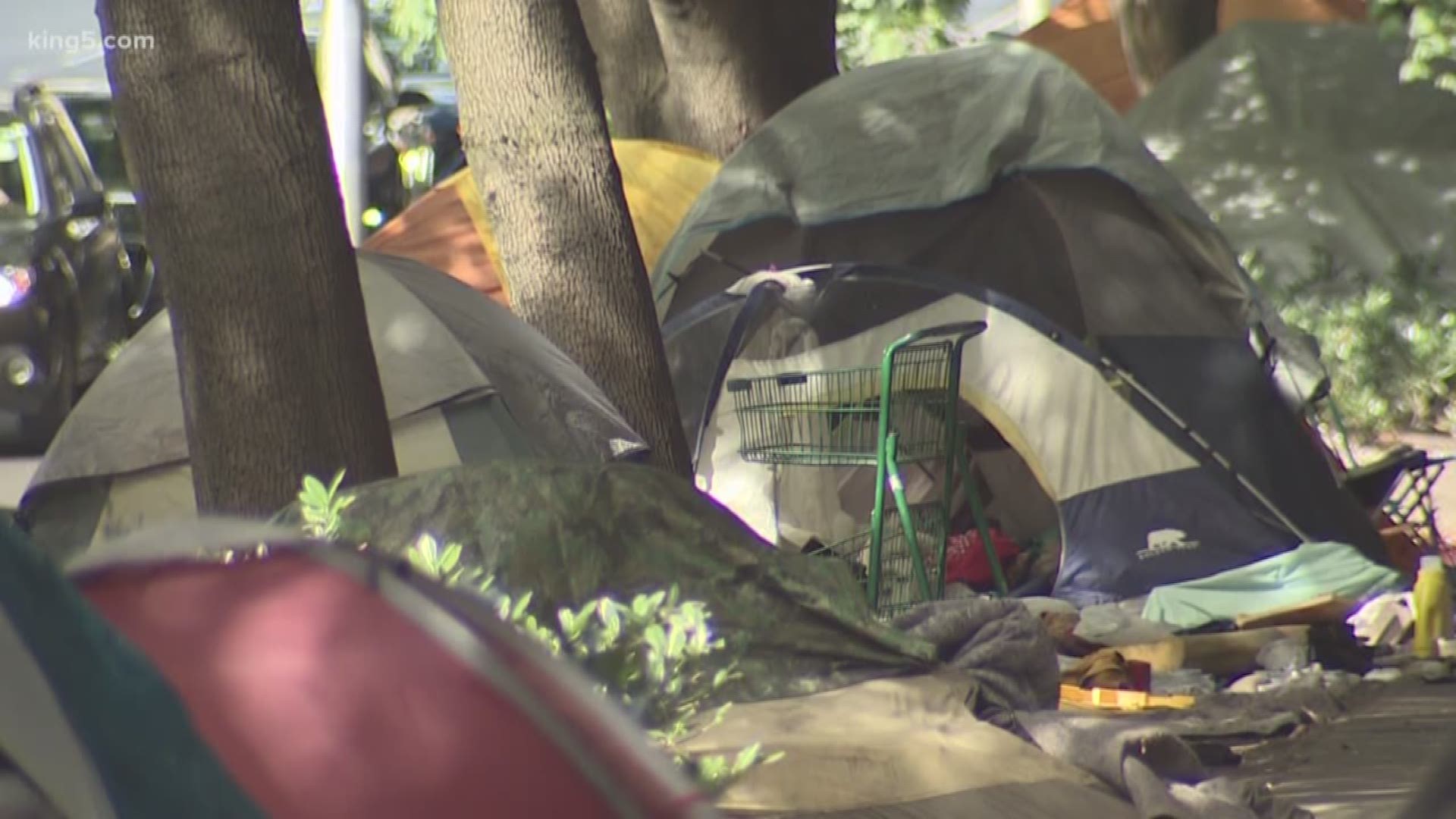SEATTLE — A trio of Seattle health companies, including two of the city's hospitals, have announced $15 million in donations for projects aimed at the homeless.
The money will help fund three projects geared toward helping the chronically homeless, who experts say make up a limited proportion of the homeless overall but can be among the most difficult to reach.
The funds will pay for a relatively small portion of three building projects in the city, but the group behind the projects said they plan a campaign to fund the projects and others. The three projects will collectively create around 290 units of housing that include on-site staffing to help residents stay connected to medical, counseling, and other support services.
Advocates say such projects are a cost-effective over the long term, providing a steady safety net rather than forcing those living on the street to access costly, often non-tailored emergency services.
"We are creating permanent, supportive housing for our neighbors experiencing homelessness," said Paul Lambros, head of Seattle homeless-fighting nonprofit Plymouth Housing, the recipient of the donations.
Swedish Health Services, Providence St. Joseph Health and Premera Blue Cross each donated $5 million.
Representatives for Lambros' group did not make a total budget available for the projects, but said the first of the three — the only one to have broken ground so far — is slated to cost about $34 million. The other two are scheduled to break ground within two years, Lambros said.
The facilities will feature case managers and a 24-hour staff presence, according to Amanda Vail, a spokesperson for Lambros' group.
Homelessness has mostly leveled off after years of gradual decline nationwide, but the West Coast continues to be hit harder than other parts of the country, said Nan Roman, head of the National Alliance to End Homelessness.
The Seattle area in particular has seen increases in recent years.
Everett and surrounding Snohomish County saw a 65 percent jump in people living outside between 2015 and 2017, according to a 2017 count — one of the largest increases on the West Coast in that period.
The following year Seattle logged a smaller overall increase — about 4 percent — but saw a nearly 30-percent jump in people experiencing chronic homelessness, according to a city count.
Defined as people who have been homeless for more than a year or slipped into homelessness more than four times in three years, and who have a chronic health problem, psychiatric issue, or a disability, the chronically homeless are the focus of the gifts announced Wednesday,
That population can be especially hard to reach, said Sara Rankin, a law professor at Seattle University and founder of the Homeless Rights Advocacy Project.
"This investment is important because it targets chronically homeless people," Rankin said.
Living continually in the open while struggling with a disability or chronic illness leads them to be on average much more likely to be victims of violence, the subject of a law enforcement stop, or to need emergency medical treatment, Rankin said.
That combination of vulnerability and disability also makes them expensive to help, in terms of the municipal services they use, including police and fire department calls and emergency room visits, Rankin said
Roman, of the National Alliance to End Homelessness, added that creating housing could potentially be a long-term benefit to hospitals in particular by stemming a flow of emergency room visits for a group of patients that actually need long-term care.
"It's of interest to hospitals and healthcare facilities to get these folks in housing," Roman said.

